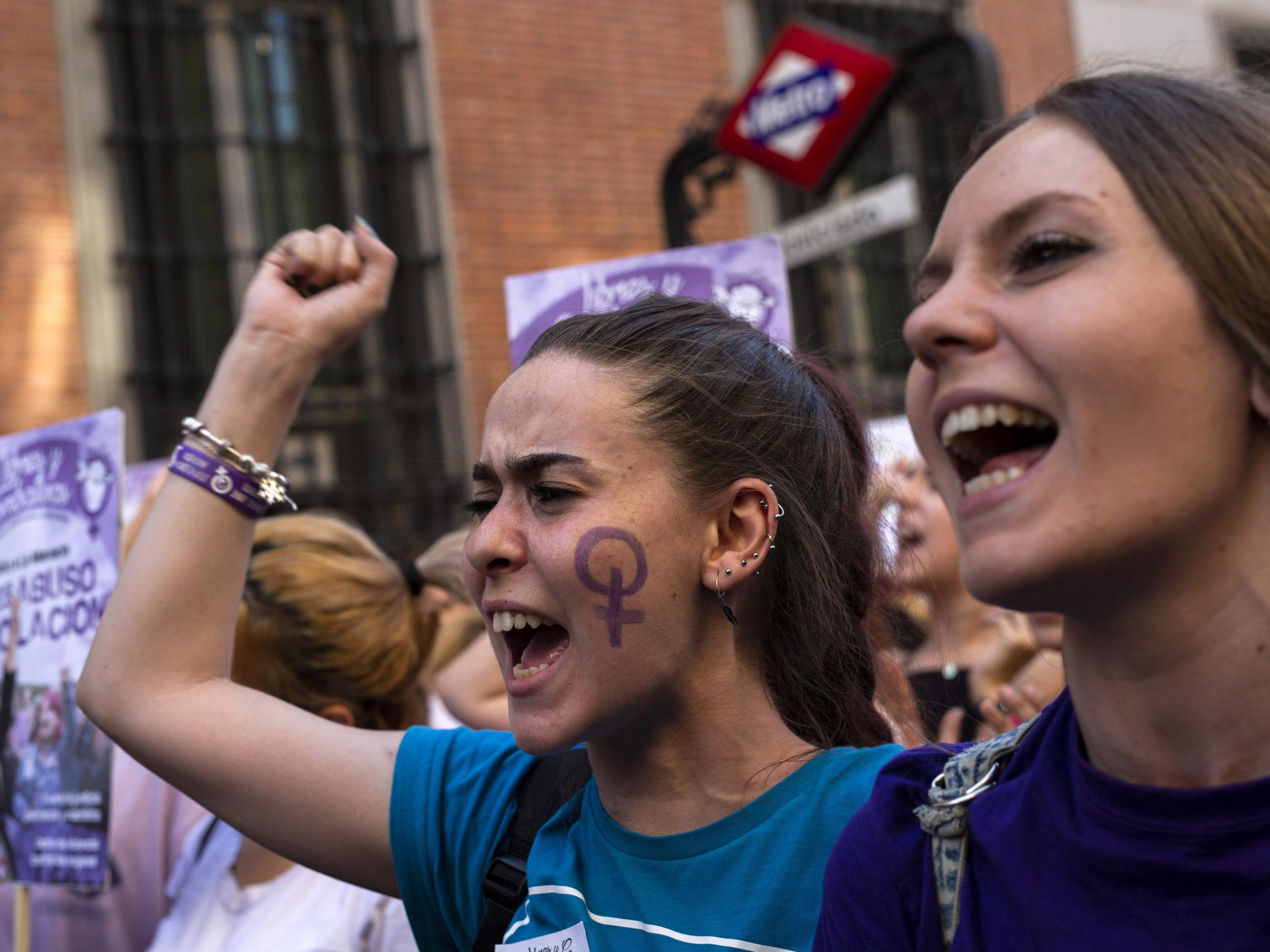'Wolf pack' sex attackers did not gang rape teenager, Spanish appeals court rules
'Male chauvinism is well established in the courts and we must take measures,' leading politician says

A Spanish appeals court has upheld a controversial ruling clearing five members of the notorious "wolf pack" group of gang-raping a teenager.
The men were cleared of rape charges over the assault in April, which took place during the Pamplona bull running festival in 2016, but convicted of sexual abuse.
Under Spain’s criminal code, rape must involve specific acts of violence such as being threatened with a knife or dealt physical blows.
The decision sparked protests across Spain amid calls for tougher punishments for sexual crimes.
But a majority of a five-judge panel at the court in Navarra on Wednesday confirmed nine-year prison sentences for the men for the lesser crime of sexual assault. The case is now set to go to the supreme court.
The wolf pack, or “La Manada”, takes its name from a WhatsApp group used by the men to boast about drugging women for the purpose of abusing them.
During the 2016 festival, five members of the messaging group ushered an 18-year-old woman into the lobby of a residential building where they sexually attacked her nine times in the space of half an hour.
They then stole her mobile phone and left her there. Following the incident, they boasted about the crime on their WhatsApp group and posted photos and videos of the attack.
The state prosecutor had originally asked for sentences of more than 20 years for rape, which in Spain requires a plaintiff to present evidence of specific violence.
Lawyers for the defence claimed the woman consented and let one of the men kiss her. They also said a short video footage from the encounter showed the woman not moving and with her eyes shut, proving she consented.
The prosecution argued the victim was too terrified to move.
The initial verdict, delivered by the three judges, said the woman had not been raped since she had adopted “an attitude of submission and subjugation”.
This fresh ruling agreed the lack of physical violence meant they would not be convicted of rape under Spanish law.
In July the government announced plans to change the Spanish penal code to make rape convictions easier.
"The sentence reinforces the need to make precise changes to the crimes of rape and sexual violence and to differentiate them those of abuse," deputy prime minister Carmen Calvo wrote on Twitter on Wednesday.
The case attracted international attention in the wake of the global #MeToo movement that has highlighted sexual abuse and mistreatment of women.
It also raised questions about the annual San Fermin festival, which is famed for its drunken revelry. Concern has grown over increased reports of sex attacks and harassment at the event, as well as over the mistreatment of women in general in Spain.
"[The ruling] is an embarrassment that shows that male chauvinism is well established in the courts and we must take measures, measures that must educate judges because woman can't continue to live in fear," the leader of the far-left Podemos party, Pablo Iglesias, told state broadcaster TVE on Wednesday.
The original ruling was met by a wave of protests in Pamplona and other cities across Spain, where chants of "I believe you, sister" and "Drunk and alone, I want to get home" rang out across town squares.
Further protests were announced in cities across Spain following the latest ruling.
The Spanish judicial system also sparked criticism when the men were released on bail in June on a legal technicality that says no one can be held for more than two years without a definitive sentence being handed down.
All five men, who include a former policeman and a former soldier, paid €6,000 (£5,339) in bail, though their release led to further protests and concern across the political spectrum with pledges to revise the justice system's response to such charges.
Additional reporting by Reuters
Join our commenting forum
Join thought-provoking conversations, follow other Independent readers and see their replies
Comments